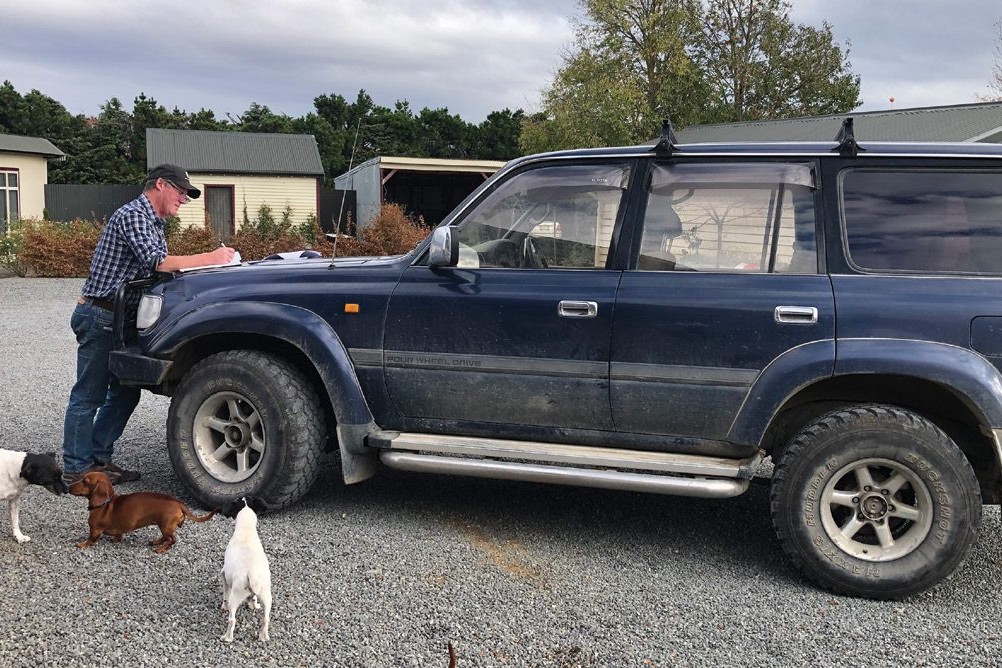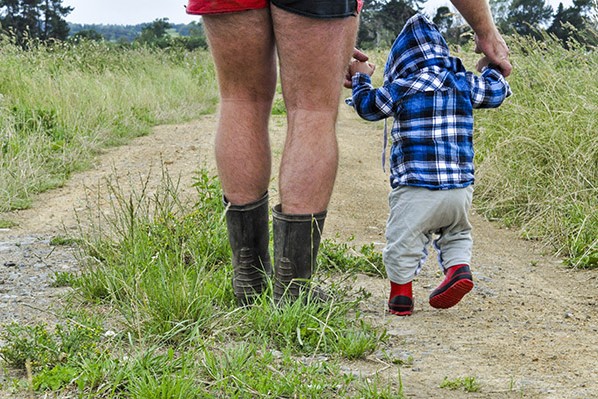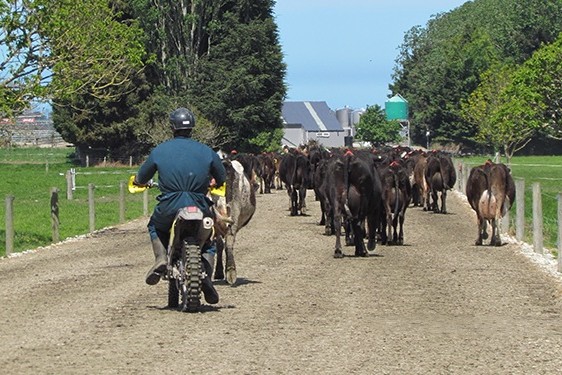Conversations save lives
Harriet Bremner urges people to talk about known dangers that could prevent accidents or deaths onfarm.

They were stone cold dead when they were found. Gone. Others knew not to go there but maybe if that person had used some common sense they would still be alive”.
This was what I heard someone say in relation to an accident that happened years ago. It quite simply made me feel deflated, that it was said with little care for the person who died and suggested that if they hadn’t been so stupid they would not be dead.
I am absolutely 100% sure that if it was their precious family member who had passed – their opinion around the matter would be very different.
My argument is that all that had to happen was for the people who knew about the danger to inform others of it. A simple conversation that would have saved a life and a family from a lifetime of grief.
I am not going to go into details about what, where, why, who and so on because that doesn’t actually matter and it is not the point. The point is that conversations save lives.
We cannot assume that someone will look at something and see the imminent danger right in front of them, therefore, we cannot assume anything.
Assumption is something I have learnt, can get you into trouble with many different things in life, yet we tend to assume many, many things. For instance; we assume that because someone is an ‘adult’ that they are able to drive a car. I have personally never asked anyone to prove to me that they have their licence before they jump behind the wheel, have you?
It has just been that time of year again where many of you will have gone through a change of job yourself or a change in staff on the farm coupled with drying cows off, organising grazing and more.
In the thick of it, it is very easy for us to drop into this assumption mode as we like to believe that the people who are standing in front of us are competent at what they do.
We assume that because they have worked on farms before they are able to drive the tractor or move irrigation… but are they competent at it and do they understand your systems?
It is during a time like this that people are tired, stressed from moving their lives and families, thrown into the unknown and wanting to make a good impression.
This, mixed with many things needing to be done on the farm, can be a disaster waiting to happen because when our mind is not 100% focused on the job, we are more likely to have an accident.
SMOOTH STAFF TRANSITIONS
I spoke to a farmer who underwent staff changes this year with his contract milker and asked him how he made sure that the process was smooth, straight forward and happened with little stress on both parties. He had been with his previous contract milker for nearly seven years and so it had been awhile since he had had to go through the process of change.
The first thing he said is that it comes down to planning and this needs to happen well before June 1. If the prior preparation is done, it prevents piss-poor performance!
It also means that you aren’t all running around like headless chickens trying to farm, plus do the formal side of things at the same time. If this is the case, people will not have their focus where it needs to be and things can unravel, resulting in an accident or something worse.
THINK ABOUT THE NEW ARRIVAL TO YOUR FARM:
- How are you going to support them in learning about their new role?
- What steps can you take to make sure that they know they are up to speed with what they need to do?
- Have you had a chat with them about being an open book who they can approach about things when they need to, from mental health to learning how to operate new equipment? These are some of the things that quality leaders will be doing daily.
I do hope that everyone had a smooth transition onto a new farm or with new employees. Remember that sometimes people do not admit when they are struggling with something, so take time to get to know each other and form strong, positive and open relationships as this can be a lifesaver.
Top tips: From one farmer to another
- Always have good relationships with your current employees so that if they do decide to move on you know that they will come and speak to you about it. This allows you to start the planning process early. We knew last December which gave us all plenty of time to sort the nuts and bolts out of the process really well and it was clear what was going to happen moving forward. Round table discussions were held on a regular basis to make sure we were all on the same page.
- Always plan well in advance e.g. For succession planning to work well we have a folder that includes everything from diagrams and maps of water lines and power, hazards and paddocks, just to name a few.
- Paddock, fert and rotation history allows people to quickly access what has been happening previously on the farm.
- Access to phone numbers and contact list for local contractors and service providers in the area saves time.
- Allow the new person to come onto farm several times to work and learn alongside the current contract milker so that they know all the niggly things like; where taps are, so that when the cows come back in spring things can move forward smoothly. The later in the season you leave this, the busier it gets and the harder it is to find time with the person leaving.
- Communication is key.
- If you have been used to the same person you get stuck in a comfort zone with the routine that you know, so stopping and thinking about your role in the process is really important as well.
- Making sure that houses, yard, shed, farm are all tidy and clean when new people arrive so that they feel appreciated.
- We fill the woodshed up for new employees – it is a cost but it goes a long way and starts the relationship off on the right foot. Anything that is a kind gesture like this makes people feel valued.
- Do not assume that they are going to do things the same way that you do, if you have an expectation then this needs to be discussed from the beginning through the contract so that there are no grey areas. This needs to be a two way discussion.
- If they are from out of the area, make an effort to get them involved in the community.
- An organised workforce is a happy and productive one.





